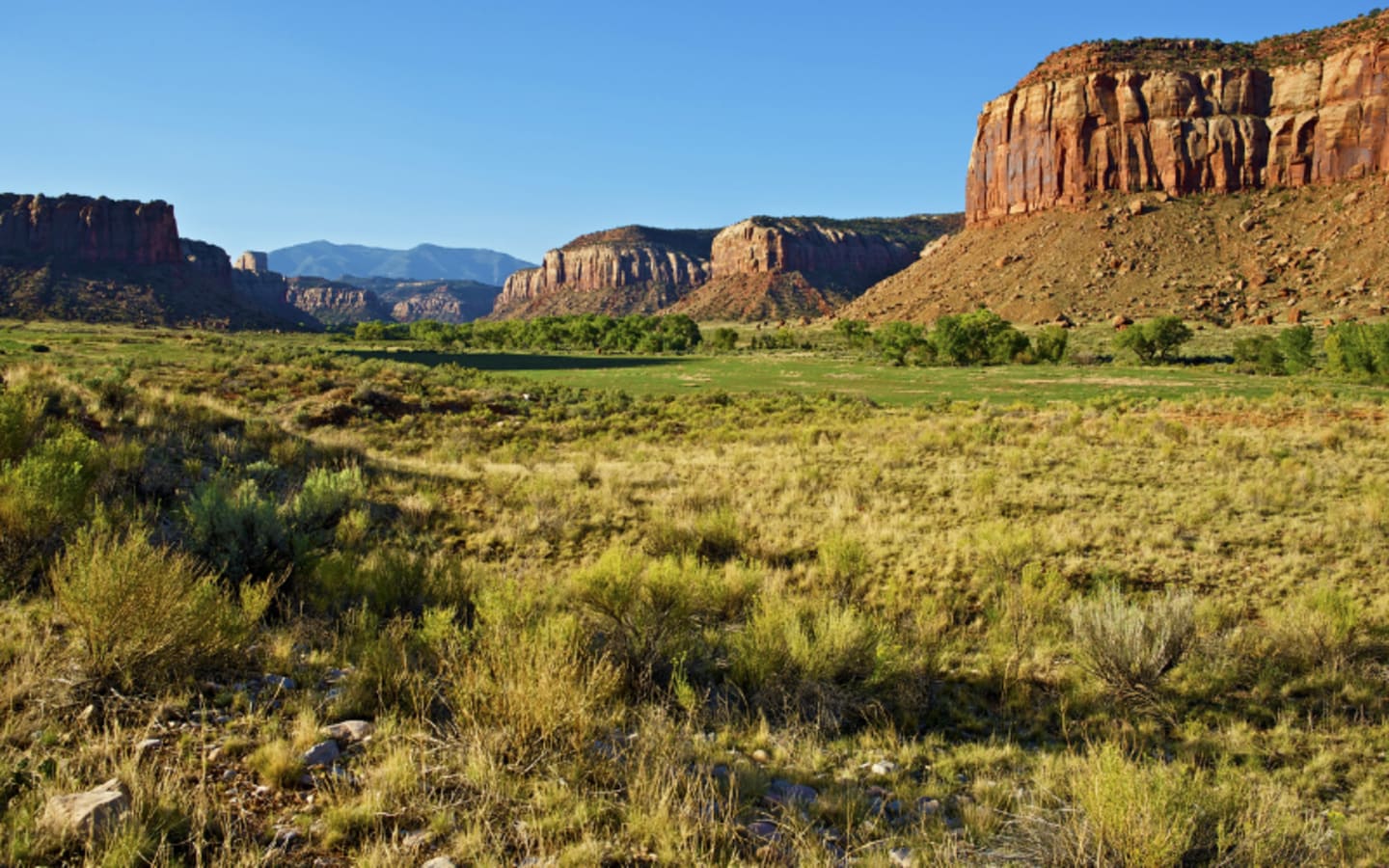Utah Senator Mike Lee has stirred up a storm with his proposal to sell off millions of acres of public land, but growing opposition from hunters, anglers, and even fellow Republican senators has forced him to rethink his approach. His original plan, tucked into a massive budget reconciliation bill, aimed to offload 2-3 million acres of federal land, with up to 250 million acres potentially eligible for sale. The backlash was swift, with public land advocates rallying across the country and key GOP figures publicly rejecting the idea. Now, Lee says he’s working on changes to scale back the plan, but questions remain about what those changes mean and whether they’ll satisfy critics.
The controversy started when Lee’s amendment to the budget reconciliation bill came to light. It called for the Bureau of Land Management (BLM) and U.S. Forest Service to sell off massive chunks of public land, primarily in Western states. For many Americans who cherish these lands for hunting, fishing, hiking, and other outdoor activities, the proposal felt like a betrayal. Public lands are a cornerstone of outdoor recreation, offering access to wide-open spaces that define the American West. Lee argued the sales would address the housing crisis by freeing up land for development, but critics quickly pointed out that the plan could prioritize developers over everyday people.
The pushback was intense. Hunters and anglers, organized by groups like MeatEater, flooded senators’ offices with calls and emails. Rallies popped up nationwide, with thousands demanding that public lands stay public. Ryan Callaghan, a prominent voice from MeatEater, didn’t hold back, saying Lee was “feeling the heat” and had become “a very unpopular dude” because of his proposal. The pressure wasn’t just from the public—four Republican senators also come out against the plan, a significant hurdle given the GOP’s slim 53-47 Senate majority. With only three votes to spare, Lee’s bill was in serious trouble.
Montana Senator Steve Daines was blunt: “I don’t like it—I oppose the sale of public lands.” While he noted that Montana was exempted from the sales, he still wasn’t happy with the overall bill. Montana’s Tim Sheehy echoed that sentiment, with his spokesperson saying he believes “public lands belong in public hands.” Idaho Senators Mike Crapo and Jim Risch also took a stand, with Crapo’s team stating he didn’t support the language after a thorough review, and Risch’s office confirming he opposed the provision outright. This Republican resistance, combined with public outcry, led to a major development: the Senate parliamentarian ruled that the land sales couldn’t be included in the budget reconciliation bill, effectively halting Lee’s plan for now.
Facing this roadblock, Lee took to X to announce he was listening to critics, particularly hunters, and would make changes to his proposal. In a post directed at Hunter Nation, he wrote, “You spoke, and I’m listening. I’ll be making changes in the coming days.” While he hasn’t shared specifics, Lee hinted at narrowing the scope during an interview with Glenn Beck. He suggested limiting land sales to BLM-managed lands within five miles of population centers and Forest Service lands within two miles of towns. “This deals with land that is only in or near a place people live,” Lee said, framing it as a way to balance housing needs with public land preservation.
But not everyone’s buying it. Critics argue that Lee’s revised plan still misses the mark. For one, the federal government already has a process for selling public land under the Federal Land Policy and Management Act (FLPMA). This existing system ensures that revenues from any sales go toward acquiring other valuable public lands, benefiting the American people. Lee’s bill, however, would create a new process that sends sale proceeds directly to the U.S. Treasury, potentially shortchanging conservation efforts. Callaghan pointed out the flaw, saying, “If we need to sell lands for something like affordable housing, we already have a process to do that. It’s called FLPMA.”
There’s also concern about the precedent Lee’s bill could set. Even if he limits the land eligible for sale in this version, establishing a new process for selling public land could open the door to bigger sales in the future. House Speaker Mike Johnson has already signaled plans for two more budget reconciliation bills, which could give Lee additional chances to push his agenda. Callaghan didn’t mince words: “Mike Lee doesn’t get to apologize. This is his bag of shit that he brought to the table.” He urged people to keep the pressure on, warning that any compromise could weaken protections for public lands.
For those who value public lands, the fight isn’t over. Callaghan and others are encouraging people to call their senators through the Capitol switchboard at 202-224-2131. He offered practical advice for making those calls count: be polite, get to know the staffer’s name, and make it personal. “Public lands are a personal issue to all of us,” he said. “Tell your story.” Whether it’s a favorite hunting spot, a fishing trip with family, or a hike that clears the mind, these lands hold deep meaning for millions. Callaghan’s advice is to thank senators who support public lands but press them on what they’re doing to keep land sales out of the budget process altogether.
As of now, Lee’s office hasn’t responded to requests for more details on his planned changes, and it’s unclear whether the Senate parliamentarian will greenlight any revised version. What is clear is that the battle over public lands has struck a nerve. For many, these lands aren’t just patches of dirt—they’re a way of life, a connection to nature, and a legacy for future generations. Whether Lee’s revisions will ease concerns or fuel more opposition remains to be seen, but one thing’s certain: the fight to keep public lands public is far from over.





